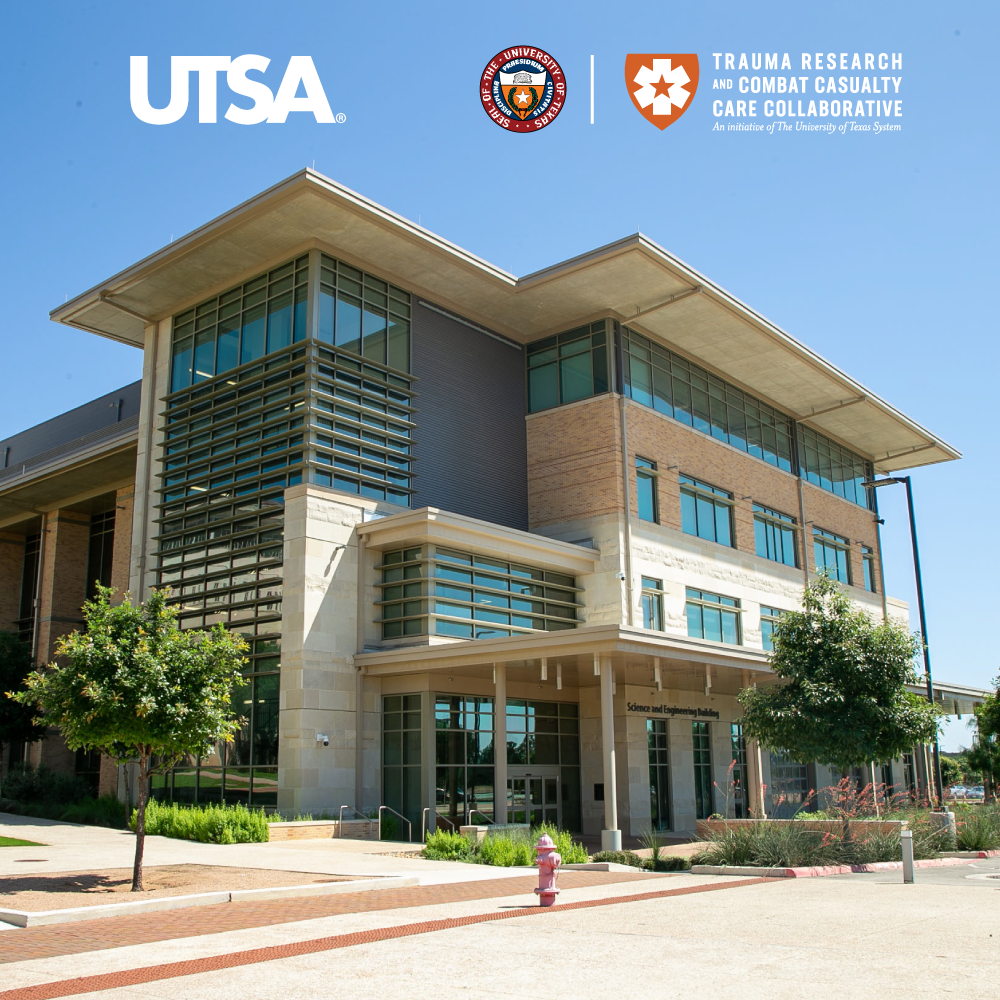Position Information
The University of Texas at San Antonio (UTSA), College of Science (COS), College for Health, Community and Policy (HCAP), Klesse College of Engineering and Integrated Design (KCEID), and College of Education and Human Development (COEHD) invite applications for five Associate or Full Professors to contribute to a Brain Health and Trauma Research cluster hiring initiative to begin in the fall semester of academic year 2025-26. The goal of this cluster hire is to bring together experts from a wide-range of disciplines to conduct innovative, cross-cutting research that explores the complex effects of neurodevelopmental conditions or traumatic stress on brain function and behavior. Areas of focus include conditions affecting the nervous system, ranging from neurodevelopmental disorders (e.g., autism, intellectual disabilities, etc.) to late-life neurodegeneration. The focus also extends to the impact of psychological and physical trauma, such as post-traumatic stress disorder [PTSD], traumatic brain injury [TBI], and bodily injury, whether these occur alone or in combination. As such, the goal of this cluster is to foster transdisciplinary collaboration that could yield highly innovative insights into these complex issues. Our envisioned faculty positions will bridge basic and translational/clinical research, offering comprehensive resources to address the entire care continuum from prevention to long-term care.
For the Brain Health and Trauma Cluster, five positions are open in these areas:
- Neuroscientist studying neurodevelopment, animal or human neuroscience.
- Clinical Psychologist performing research with children or adults conducting preventative interventions, clinical trials, or longitudinal trials in the area of trauma, PTSD, or TBI.
- Epidemiologist or similar field within Public Health focusing on acute and long-term outcomes research in injury/trauma epidemiology or injury/trauma prevention/intervention.
- Biomedical Engineer using approaches to promote brain health or trauma prevention/intervention.
- Behavior Analyst, housed in Educational Psychology, who uses data science or AI methodology for assessment and treatment research focused on human or animal subjects.
The Clustered & Connected Hiring Program is designed to recruit and hire some of the best and brightest minds of varying backgrounds and experiences in select fields to The University of Texas at San Antonio (UTSA) to join in efforts to address some of today’s most significant challenges.
The University of Texas (UT) System approved the creation of the Regents’ Research Excellence Program across its four Emerging Research Universities (ERUs), including UTSA. UT System has allocated $55 million across all four ERUs to fund the recruitment of research-active faculty to dramatically grow its national research prominence and federal funding opportunities. UTSA’s allocation from UT System that translates to approximately 40 new faculty positions for new, mid- to senior-level faculty over the next several years who will add expertise in research areas that will enhance competitiveness, help solve societal needs and advance the university’s capacity to meet UT System and state goals as outlined by the Texas Legislature.
Position Summary
The university is looking for outstanding individuals at the Associate and Full Professor level with demonstrated research expertise who can help strengthen its research and academic programs. Applicants are sought in the broad areas of brain health or trauma research. Subfields of interest include but are not limited to neurodevelopment, animal and human neuroscience, traumatic brain injury, physical injury, psychological trauma, and behavioral science. The successful candidates are expected to build successful, externally funded research programs in collaboration with individuals and groups through UTSA and the brain health or trauma research ecosystem in San Antonio and across Texas. The Brain Health Consortium (BHC) was established in 2019 as a university level center/institute with over 70 participating scientists spanning 5 affiliated colleges working together to advance our basic understanding of the brain to prevent and treat the most debilitating brain disorders. The BHC has partnerships with UT Health San Antonio’s Center for Brain Health, Texas Biomedical Research Institute’s Southwest National Primate Research Center, Southwest Research Institute, Morgan’s Multi-Assistance Center, CHRISTUS Children’s Hospital, STRONG STAR PTSD Consortium, and the Trauma Research Combat Casualty Care Collaborative to connect basic and translational research. Applicants that can successfully leverage these resources while demonstrating a creative vision for original research are particularly encouraged to apply. The incumbent must be able to (1) develop an externally funded and internationally recognized research program; (2) supervise MS and PhD students; (3) teach undergraduate and graduate classes; (4) work with others across disciplinary boundaries; and (5) serve their department, college, and the university.
Qualifications
- Candidates should have a conferred Ph.D. in respective targeted areas including: neuroscience, clinical psychology (research-intensive PsyD will be considered), educational psychology, public health, education, behavior analysis, biomedical engineering, artificial intelligence/statistics, data science, or an appropriately relevant field by the time of application.
- The successful candidate is expected to demonstrate a record of leadership in high quality, collaborative research, and an excellent scholarship record of external funding commensurate with rank.
- Record of developing scholarly products that are critical to advancing research with an emphasis on brain health or trauma research.
- Record of teaching at the graduate and undergraduate levels.
- Evidence of service to the university, field, or profession through leadership in the brain health or trauma research arenas.
- The successful candidate must have the ability to work with and be sensitive to the educational needs of first generation and low-income students and be committed to assisting the University’s commitment to thrive as a Hispanic Serving Institution.
- Licensed or licensed eligible in Texas (clinical psychologist and behavior analyst)
- Board Certified Behavior Analyst Credential (behavior analyst)
Application Process
This position will remain open until filled. To ensure full consideration, please apply by December 1, 2024. Interested candidates must apply through the following link: https://bit.ly/3zUK2lI
- A current curriculum vitae
- Complete contact information for at least three professional references
- A research statement (4-page limit)
- A teaching statement (2-page limit)
- A statement highlighting potential areas for transdisciplinary collaboration (2-page limit)
Questions and nominations for any position should be sent to the Director of the Brain Health Consortium, Jenny Hsieh, Search Committee Chair at jenny.hsieh@utsa.edu.
Cluster Hiring Interview Process
UTSA aims to bring transdisciplinary and collaborative groups of faculty researchers to the university through its cluster hiring program. As such, the on-campus interview for these positions will be conducted as a collaborative group interview, during which all on-campus candidates for a cluster will meet with UTSA faculty and staff simultaneously. This collaborative process allows candidates to discuss potential research collaborations with fellow candidates and current UTSA faculty. Additionally, each candidate will be given the chance to present their job talk and engage the faculty, staff, and students from their discipline’s home department.
The University of Texas at San Antonio (UTSA)
The University of Texas at San Antonio is a Tier One research university and a Hispanic Serving Institution specializing in digital economy, human health, fundamental futures, and social-economic transformation. With more than 35,000 students, it is the largest university in the San Antonio region. UTSA advances knowledge through research and discovery, teaching and learning, community engagement and public service, and with an intentional focus on career readiness, the university produces more graduates for the workforce than any other institution in the region. It is a catalyst for socioeconomic development and the commercialization of intellectual property — for Texas, the nation, and the world. In August 2024, the UT System Board of Regents authorized the UT System to begin integrating UTSA and the UT Health Science Center at San Antonio into one unified institution, establishing a world-class university that integrates academic, research, and clinical excellence to build a profoundly impactful university of the future. Driven by a vision for growth and impact, this merger will expand capacity to offer robust undergraduate and graduate programs, attract top-tier faculty and staff, develop innovative initiatives, and elevate transdisciplinary research to address the evolving needs of the region.
UTSA has been recognized as a Top Employer in Texas by Forbes Magazine. Learn more online, on UTSA Today or on X (formerly Twitter), Instagram, Facebook, YouTube or LinkedIn.
Affiliated Colleges
College of Sciences (COS)
COS offers 17 undergraduate degree programs and 19 graduate degree programs in the life sciences, physical sciences, computer science, and mathematics, which is supported by over 300 faculty members across 8 academic departments. COS is UTSA’s second largest college in terms of undergraduate and graduate student enrollment. In Fall 2023, it recorded its highest student enrollment in college history with 5580 undergraduate students and 610 graduate and post-baccalaureate students. COS is major contributor to UTSA’s Carnegie R1 status with its strong commitment to advancing scientific knowledge and addressing real-world challenges. COS has grown its annual research expenditures to approximately $50 million with over 300 actively funded research projects in areas like brain health, infectious disease and artificial intelligence among other fields. COS is aligned with numerous research centers and institutes, including the South Texas Center for Emerging Infectious Diseases, Artificial Intelligence (AI) Institute, Brain Health Consortium, Center for Advanced Measurements in Extreme Environments, and the Center for Innovative Drug Discovery. Visit the College of Sciences website to learn more: https://sciences.utsa.edu/.
College for Health, Community and Policy (HCAP)
HCAP trains students to develop solutions for complex social issues to improve the well-being of our communities. By engaging directly with the City of San Antonio, coined “Military City USA”, students and faculty live the college’s mission to advance human health every day. The college is comprised of seven academic departments and one program —criminology and criminal justice, kinesiology, nutrition and dietetics, psychology, public administration, public health, social work and sociology and demography —as well as the Center for Applied Community and Policy Research, the Center for Community Based and Applied Health Research, the Institute for Demographic and Socioeconomic Research and the Institute for Health Disparities Research. HCAP includes nearly 200 faculty and 7,000 students pursuing undergraduate and graduate degrees. Visit https://hcap.utsa.edu/ to learn more.
Klesse College of Engineering and Integrated Design (KCEID)
KCEID is home to more than 4,300 undergraduate and graduate students in 9 undergraduate, 16 Masters, and 6 PhD degree programs. The college is supported by over 140 tenure/tenure-track and fixed-term faculty and a dedicated cadre of staff. Each of the KCEID’s five units brings unique value for advancing its mission—these include the Departments of Biomedical Engineering and Chemical Engineering, Electrical and Computer Engineering, and Mechanical, Aerospace, & Industrial Engineering as well as the Schools of Architecture & Urban Planning, Civil & Environmental Engineering, and Construction Management. KCEID is also home to 10 research institutions and centers, a student success center, a Large-scale Testing Laboratory, and a Makerspace, supporting research through research and discovery as well as educational excellence. Collectively, these students, faculty, and staff within KCEID support KCEID’s mission to identify and solve grand challenges where humanity intersects the physical world. KCEID educational programs are accredited by ABET, the National Architectural Accrediting Board (NAAB), the American Council for Construction Education (ACCE), and the Council of Interior Design Accreditation (CIDA). For more information about KCEID, please visit
College of Education and Human Development (COEHD)
UTSA’s College of Education and Human Development (COEHD) is home to approximately 2,000 students enrolled in more than 30 undergraduate and graduate degree programs. The COEHD is comprised of six unique departments, each of which is essential to advancing its mission. These include the Departments of Bicultural/Bilingual Studies, Counseling, Educational Psychology, Educational Leadership and Policy Studies, Interdisciplinary Learning and Teaching, and Race, Ethnicity, Gender, and Sexuality Studies. UTSA’s COEHD was recently ranked second best College of Education in the University of Texas System. The COEHD is highly engaged in San Antonio and surrounding communities, and prides itself on addressing grand challenges of the future related to education and human development using an interdisciplinary approach. Pursuant to our role as a Hispanic Serving Institution, we engage, advocate, and lead with the communities we serve. We are committed to the UTSA destinations of becoming a Model for Student Success, a Great Public Research University, and an Exemplar for Strategic Growth and Innovative Excellence. For more information about the College of Education and Human Development, please visit: https://education.utsa.edu/.
Connected Departments
The Department of Neuroscience, Developmental and Regenerative Biology (NDRB) is a vibrant department of scientific discovery and academic excellence. A key to our success has been our ability to recruit dynamic faculty at both the senior and junior levels, thus ensuring that our research and educational programs will continue to grow in excellence with an infusion of new ideas and energy. Our mission is to conduct high impact internationally recognized research and to educate and train the next generation of leaders in biological sciences. As a department of neuroscientists, and developmental and regenerative biologists, we focus on understanding organismal, tissue and cellular function from molecules to behavior in health and disease. NDRB research programs cover various areas of development, stem cells, regenerative medicine, genetics/genomics/epigenomics, fertility/infertility, cancer, neuroscience, brain health, biotechnology, and military health. NDRB has two vibrant PhD programs in Developmental and Regenerative Sciences and Neuroscience and an atmosphere of collegiality and collaboration. Our BS in Neuroscience undergraduate program provides an outstanding foundation preparing students for graduate school, medical school, dental school, and other health-related careers. Visit https://sciences.utsa.edu/ndrb/ to learn more.
The Department of Psychology, located in HCAP, hosts one of the largest majors on campus (more than 2,000 students) and offers degree programs at the BA, MS (experimental), and PhD (experimental) levels. The department also aspires to develop a PhD program in Clinical Psychology within the next few years. Students at each level have opportunities to assist in faculty research. Our 22 tenured and tenure-track faculty represent many of the traditional subfields of Psychology, with many bridging between areas. Psychology faculty have a history of collaboration with researchers at the US Army Research Institute as well as various Industry and community partners. The department also has strong ties to the University of Texas Health San Antonio, Southwest Foundation for Biomedical Research, Veterans Administration, Pearson Testing Company, San Antonio Military Medical Center (including Brooke Army Medical Center), the Institute for Army Surgical Research, and the STRONG STAR PTSD Consortium. For more about the department, please visit our web site at https://hcap.utsa.edu/psychology/.
The Department of Public Health isone of eight departments in HCAP. The department equips students with the knowledge and skills to tackle complex health challenges with undergraduate majors in Public Health and Health Administration and a thriving interdisciplinary master’s degree. The 19 departmental faculty have specialization in a variety of public health concentrations including epidemiology, biostatistics, health policy, community health and environmental health. DPH and faculty within the department have strong collaborative relationships with UT Health San Antonio, UT Health Houston, San Antonio Metro Health, Veterans Administration, and Military agencies within San Antonio and nationally. DPH is excited to expand its expertise in epidemiology and trauma related research to learn more about the department and faculty please see our website: https://hcap.utsa.edu/public-health/.
The Department of Biomedical Engineering & Chemical Engineering (BECE) in the Klesse College of Engineering and Integrated Design (KCEID) at the at the University of Texas at San Antonio (UTSA) consists of 28 full-time tenured/tenure track faculty and 4 fixed term track faculty. BECE has 60 affiliated faculty from the University of Texas Health Science Center at San Antonio (UTHSCSA). Currently, the BECE department offers BS degrees in Chemical Engineering (CME) and Biomedical Engineering (BME), an MS in Medical Device Commercialization and Entrepreneurship (MDCE), MS in Engineering Education, and MS and PhD degrees in BME; with last two joint with UTHSCSA. UTSA’s programs are accredited by the Southern Association of Colleges and Schools (SACS) until 2030. BECE BME and CME programs are accredited by the Accreditation Board for Engineering and Technology (ABET) until 2029. In Fall 2023, BECE enrolled 410 undergraduate students, 71 BME graduate students (38 PhD and 33 MS), 9 CME PhD students, and 5 MS Engineering Education Students. Our faculty are recognized for their excellence in teaching, research, and service. The BECE expenditures for the first half of 2024 totaled $3M. More information about BECE can be found at https://klesse.utsa.edu/bmce/.
The Department of Educational Psychology in the College of Education and Human Development at the University of Texas at San Antonio (UTSA) consists of 13 full-time faculty members and offers masters degrees in applied educational psychology, behavior analysis, and school psychology and a doctoral degree in school psychology. The Master’s in Behavior Analysis program is accredited by the Association for Behavior Analysis International. Our faculty and students have been recognized regionally, nationally, and internationally for excellence in both research and teaching. For more information: https://education.utsa.edu/educational-psychology/.
Additional Information
- UTSA is a tobacco free campus.
- This is a security sensitive position. Employment is contingent upon a successful background check.
- Applicants selected must be able to show proof of eligibility to work in the United States by time of hire.
Working Conditions
This position will be primarily located on campus. Travel and parking expenses are the employee’s responsibility.
Equal Employment Opportunity
As an equal employment opportunity and affirmative action employer, it is the policy of The University of Texas at San Antonio to promote and ensure equal employment opportunity for all individuals regardless of race, color, religion, sex, gender identity, sexual orientation, national origin, age, disability or genetic information, and veteran status. The University is committed to the Affirmative Action Program in compliance with all government requirements to ensure nondiscrimination. Women, minorities, people with disabilities and veterans are encouraged to apply. UTSA campuses are accessible to persons with disabilities.











